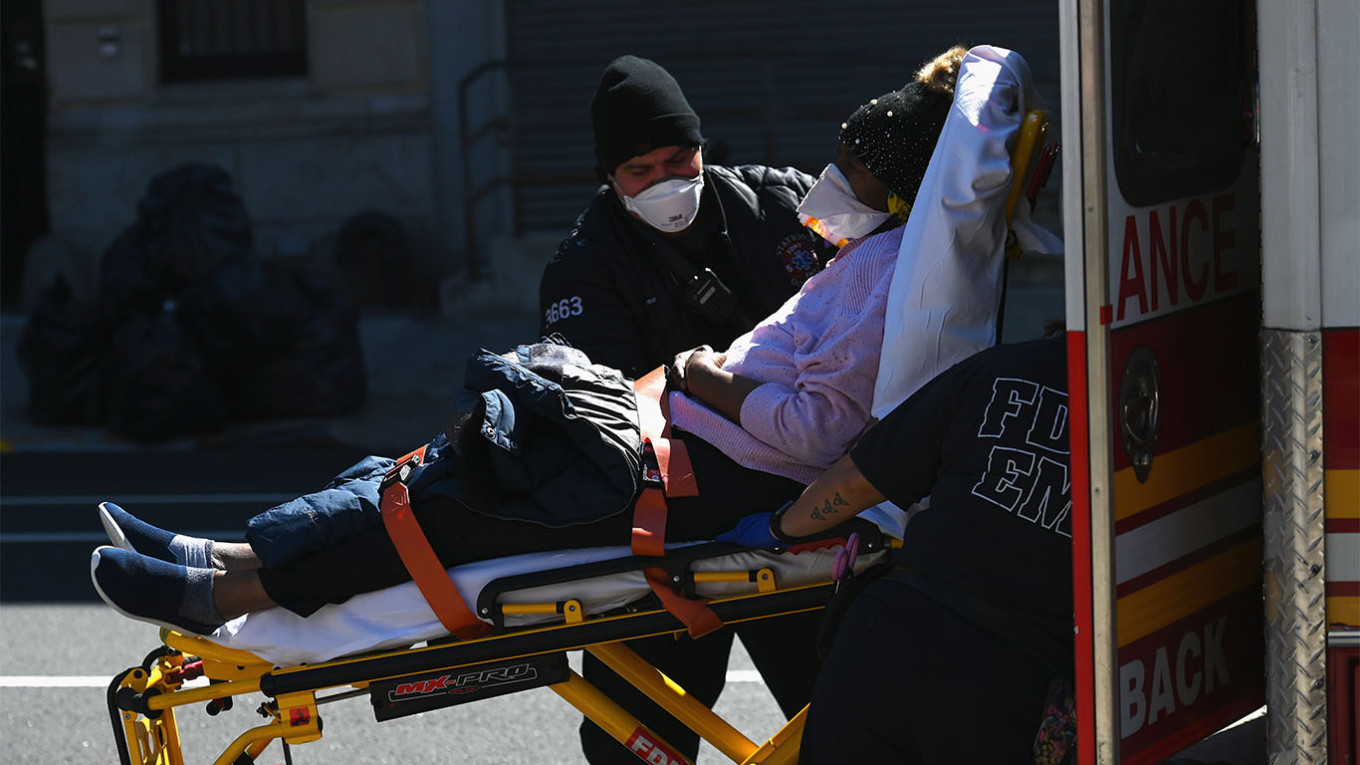
The United States may have violated its own sanctions by purchasing ventilators and other protective gear from Russia to fight the coronavirus pandemic, the RBC news website reported Friday.
Footage of the controversial cargo during unloading in New York showed boxes of ventilators made by a subsidiary of Russia’s KRET tech firm, itself a subsidiary of sanctioned conglomerate Rostec. Western sanctions block KRET and its subsidiaries from U.S. markets unless the U.S. Office for Foreign Assets Control (OFAC) issues a waiver.
“OFAC can always issue a specific internal license for a transaction involving a sanctioned party,” the Treasury Department’s former senior sanctions adviser Brian O’Toole told RBC.
“But the Trump administration might have not issued any license,” he was quoted as saying.
O’Toole said Russia’s state-owned Russian Direct Investment Fund (RDIF), which is subject to less severe U.S. sanctions, may have stepped in to avoid violating U.S. sanctions. RDIF said it paid half the costs of the Russian supplies after initial confusion over the terms of the deal.
“This still should be considered a formal violation of sanctions,” O’Toole was quoted as saying.
The U.S. State Department said it bought the entire planeload of the medical equipment. Russia’s Foreign Ministry later said the U.S. had paid for half the cargo, while Russia donated the other half.
KRET told RBC that it delivers ventilators and other anti-coronavirus equipment exclusively to Russia’s domestic market.
“The president and the government have the decisionmaking prerogative to provide international assistance,” KRET said.
Russia’s Defense Ministry and other senior officials have refused to disclose the contents of the 60 tons of supplies that touched down in New York on Wednesday. Neither the U.S. nor Russia specified the financial terms of the deal.
Critics in the U.S. accused the delivery of being an attempt at a propaganda coup for President Vladimir Putin. Inside Russia, critics derided the government for shipping the supplies abroad despite domestic shortages.
The novel coronavirus pandemic has infected 245,380 Americans and 4,149 Russians, with more than a million cases reported worldwide.
